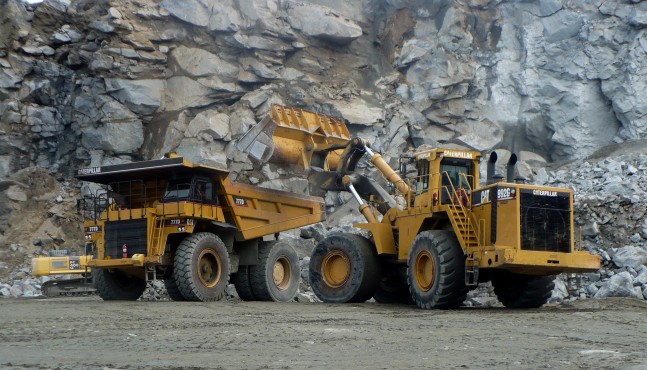Bitter pill for chrome miners

Oliver Kazunga, Senior Business Reporter
SMALL-scale miners will have to swallow a bitter pill of plummeting prices as a result of artificial stockpiling of about three million tonnes of chrome ore from Zimbabwe at different ports, it has emerged.
The Zimbabwe Miners’ Federation (ZMF) spokesperson, Mr Dosman Mangisi, said participants at a two-day chrome stakeholder consultative meeting in Gweru last week, were disturbed by the low prices for the base metal.
He said due to the economic sanctions Zimbabwe was reeling under, the country could only export its chrome to China where there are some bottlenecks.
“At the moment, China is holding onto three million tonnes of chrome stockpiles it bought from Zimbabwe and because of a glut that market cannot absorb more of that base metal until the stockpiles held at the ports in Southern Africa and China are cleared,” said Mr Mangisi.
“Of the three million stockpiles, two million tonnes are at China’s ports and one million are at the Southern Africa ports in Durban, South Africa as well as Beira and Maputo in Mozambique.”
As a result of the plummeting chrome prices on the international market, the producer price of the base metal was pegged at about $90 a tonne, a rate which saw the miners not being able to break-even.
“Chrome is a base metal and therefore its price is based on demand and supply. As a result of the saturation that has been created by the Chinese market at the ports, the price of chrome ore has been largely been influenced to go down by 65 percent as of March from $390 a tonne to $135 a tonne,” said Mr Mangisi.
He said during the consultative meeting, it emerged that the Minerals Marketing Corporation of Zimbabwe (MMCZ) had no capacity to secure alternative export markets particularly in Europe because the parastatal was under economic sanctions.
“As a result of the present situation, we do not expect to see chrome prices improving in less than six months because it takes about 90 days to have the stockpiles at the ports cleared,” he explained.
Addressing delegates at the mining indaba, MMCZ general manager responsible for marketing Mr Masimba Chandavengerwa said the chrome ore price spike that started in November 2016 came to an abrupt end in March 2017.
“In April there was a stand-off between buyers and sellers with hardly any trade taking place. The rise in chrome ore stocks in Chinese ports over the last four months or so is now estimated at 2 million tonnes, more than double what they were last November 2016. A further one million tonnes in Southern African ports contributed to the drop in prices,” he said.
Mr Chandavengerwa noted that the small-scale chrome miners’ viability was hamstrung by the fact that established smelting companies were allegedly offering prices that were below the mining costs.
He added that quality issues, limited access to cheap credit lines and failure to supply after receiving payment and inadequate or obsolete mining equipment were some of the challenges facing the chrome sector.
Chrome miners are the second largest employers in Zimbabwe’s small-scale mining industry after gold. In June 2015, the Government lifted the ban on chrome ore exports to improve liquidity in the sub-sector with the objective of promoting and facilitating sustainable long-term smelting capacity in Zimbabwe.
The country is anticipating to double chrome ore production this year to 550 000 tonnes from 284 943 tonnes in 2016.
Ferrochrome (refined chrome ore) production is also expected to rise to 300 000 tonnes, from 149 000 tonnes.
Last year, Zimbabwe realised $115 million from the export of 149 000 tonnes of ferrochrome while $31 million was earned from the export of 284 943 tonnes of raw chrome. — @okazunga












Comments